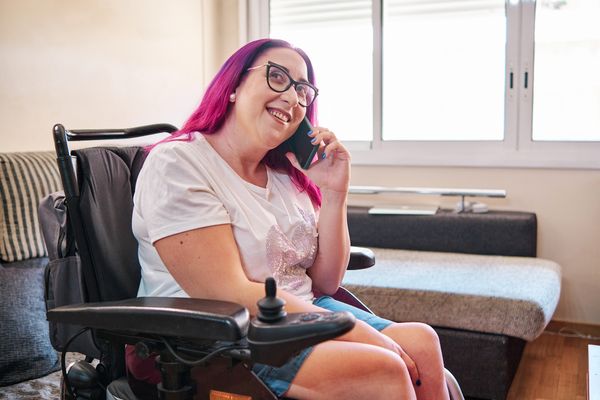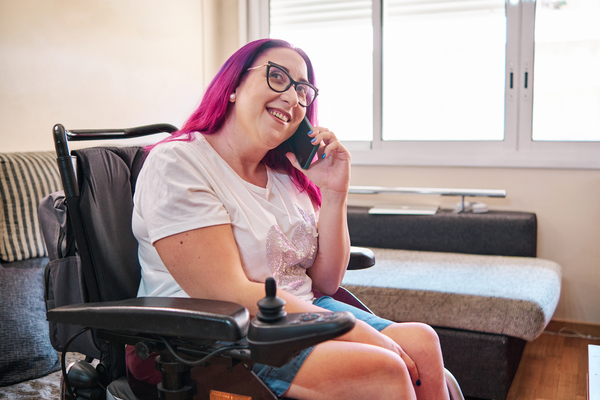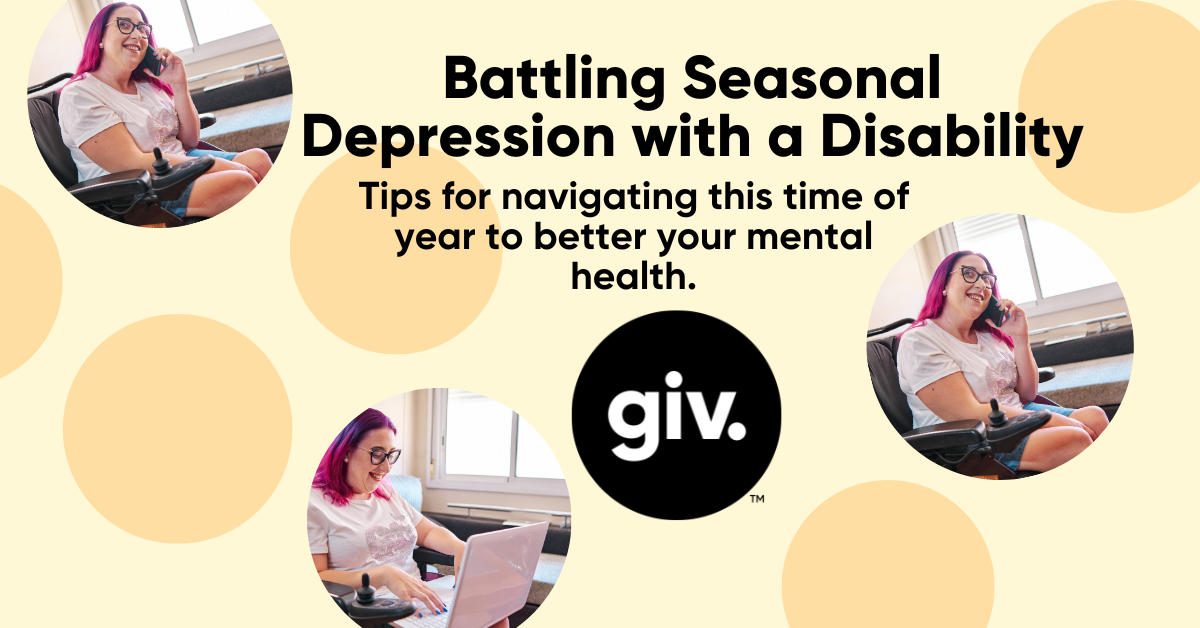Fighting seasonal depression with a disability can be challenging. Seasonal depression is a form of depression that usually hits during the winter months and is characterized by feelings of low mood, fatigue, and a lack of interest in activities that you would usually enjoy. This type of depression can be especially difficult for those with disabilities, as the lack of mobility, energy, and opportunity for socializing can make the struggle against it even more difficult.

Recognize The Signs of Seasonal Depression:
However, there are some strategies you can use to help fight seasonal depression when living with a disability. The first step is to understand the physical and emotional symptoms of seasonal depression, so you can recognize them when they arise. Common physical symptoms include a decrease in energy, a decrease in appetite, and difficulty sleeping. Common emotional symptoms include feelings of sadness, hopelessness, and a lack of motivation.
Stay Connected to Family and Friends to Combat Seasonal Depression:
Once you understand the symptoms, the next step is to develop a plan to address them. One of the most important things you can do is to stay connected with family, friends, and other members of your support network. This can be done through phone calls, text messages, video chats, or virtual meet-ups. Staying connected to your support network will help ensure you don’t feel isolated and alone.

Daily Routines for Seasonal Depression:
It’s also important to establish a daily routine and stick to it. This will help to keep your mind and body in a rhythm and can make a huge difference in combating seasonal depression. Make sure to include activities that you enjoy, such as listening to music, reading, or playing a game.
Benefits of Exercise on Depression:
Regular physical activity can also be a great way to help fight seasonal depression. Exercise releases endorphins, which are hormones that can help improve your mood. Even if you’re unable to get out and exercise, there are still ways to get active from the comfort of your own home. If you’re unable to do traditional exercises, there are a variety of adaptive exercises that can be done with minimal equipment and space.
Self-care Can Improve Depressive Symptoms:
Finally, make sure to take care of yourself. This can include getting enough sleep, eating healthy foods, and taking breaks throughout the day. You may also want to make time to practice mindfulness exercises, such as meditation or yoga, to help you stay grounded and centered.

Work with an In-Home Caregiver:
Having a caregiver in your home on a regular basis can help you to stay on track with self-care routines, exercise, eating well, and so many other activities that can have a positive impact on your mental health. Having another person around is also great for companionship and having someone to talk to and be with, especially during winter months that can often feel isolating.
Take advantage of the resources available to you, especially if you’re on a disability medicaid waiver. These waivers can connect you to a variety of resources to help you feel your best.
Living with a disability can make it difficult to fight seasonal depression, but with the right strategies and support system, it is possible. By understanding the symptoms, staying connected, and making a plan, you can combat these feelings and have positive impacts on your mental health.






